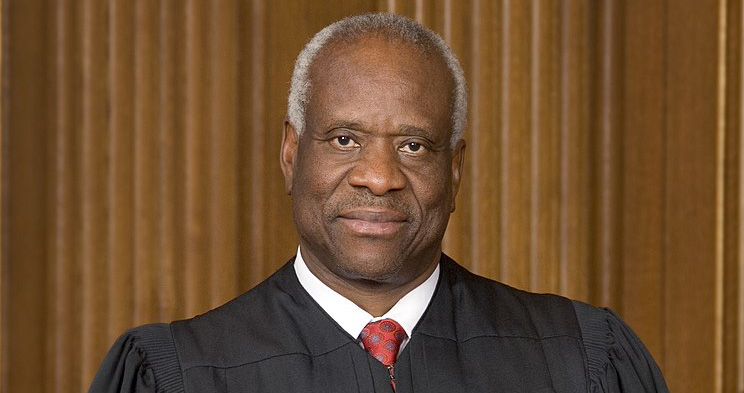Justice Thomas goes rogue on the Bluebook with 'cleaned up' citation—to the delight of appellate lawyers

U.S. Supreme Court Justice Clarence Thomas.
U.S. Supreme Court Justice Clarence Thomas went rogue on the Bluebook when he embraced an appellate lawyer’s suggestion for dealing with “citation baggage” that comes with some quoted material.
Jack Metzler, an appellate lawyer with the Federal Trade Commission, outlined the problem in an article at SSRN in March 2017. When court decisions and briefs quote from an earlier source, and the earlier source sometimes quotes an even earlier source, the Bluebook rules make for a lot of “citation baggage” that distracts from the point.
“Following the Bluebook in those situations can result in a confusing mess of nested quotation marks, brackets and parenthetical information that distracts from the writer’s point in using the quotation—to convey what the court being quoted actually said,” Metzler explained in an email to the ABA Journal. “I proposed that writers could use a single parenthetical—(cleaned up)—to signal that extraneous material was removed from the quotation without changing any of the underlying text.”
Thomas adopted Metzler’s solution in his Feb. 25 decision in Brownback v. King, adding the words “cleaned up” in parentheses after a sentence quoting from an earlier decision, Law360 reported. The article described the development as a “mini-revolution in legal citation.”
The development resonated with appellate lawyers.
“When I tweeted about Justice Thomas using it, that was like my biggest tweet ever,” Metzler told the ABA Journal. “Between that and a couple more, I had more than a million impressions on Twitter.”
Metzler said the whole idea started with a tweet.
“When the response to that first tweet was so enthusiastic, it occurred to me that people might actually be willing to use it,” he said in the email. “So I wrote a short paper encouraging people to adopt (cleaned up) and kept tweeting about the idea. Within a few days, people started using (cleaned up) in their briefs, in many cases pointing to my article to explain what the new parenthetical meant.
“Within a month, it showed up in a court decision for the first time. Then it spread to a few more courts, and then to a lot more courts,” he added.
By the time Thomas used the cleaned-up wording, it had appeared in about 5,000 judicial opinions. All the federal courts of appeals have now adopted the term, as have about three-fourths of all federal district courts, Metzler said.
Metzler responded this way when the ABA Journal asked whether Thomas’ use of the wording was a big deal: “I think it is, at least in the world of legal citation. Lawyers are both resistant to change and risk-averse, especially when it comes to the minutiae of citations. Yet (cleaned up) went from an idea in a tweet to a unanimous Supreme Court opinion in less than four years.”
[drops mic] pic.twitter.com/RIPVwsF3Az
— Supreme Court Places (@SCOTUSPlaces) February 25, 2021
Related coverage:
The Volokh Conspiracy: “New Twist on Legal Citations: The “(Cleaned Up)” Parenthetical”
The Appellate Advocacy Blog: “(Cleaned Up) Citations”
Write a letter to the editor, share a story tip or update, or report an error.


